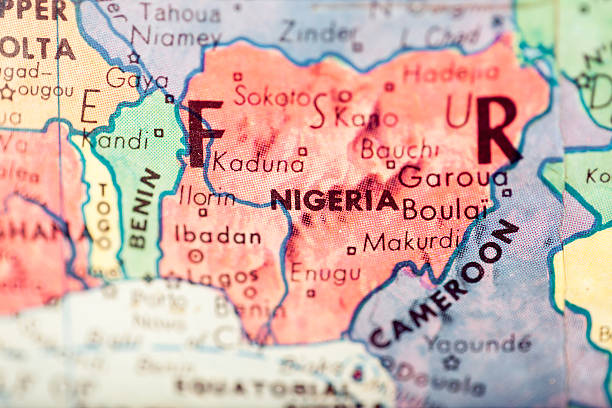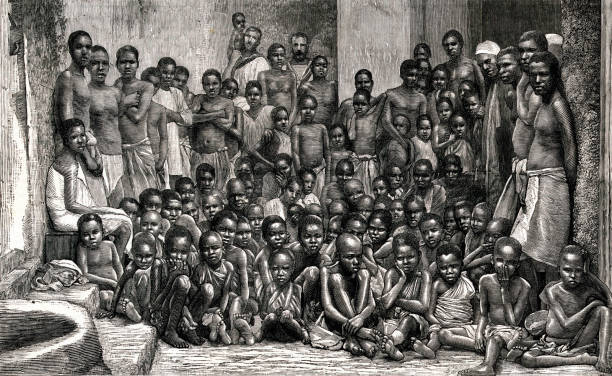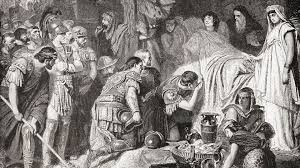Introduction
Have you ever wondered how a nation’s history can shape its present and future? Nigeria, Africa’s most populous country, has a rich and complex history, with the Nigerian Civil War standing out as a significant event. This conflict, often referred to as the Biafran War, was a pivotal moment that not only defined Nigeria’s socio-political landscape but also left an indelible mark on its people. Buckle up as we take an engaging and detailed journey through the history of the Nigerian Civil War, exploring its causes, key events, and lasting impact.
The Prelude to Conflict

Colonial Legacy
To understand the Nigerian Civil War, we must first delve into Nigeria’s colonial past. British colonization amalgamated diverse ethnic groups into one political entity, creating tensions that would later erupt. The artificial borders and administrative divisions imposed by the British sowed the seeds of discord among Nigeria’s ethnic groups, particularly the Igbo, Yoruba, and Hausa-Fulani.

Independence and Early Tensions
Nigeria gained independence from Britain on October 1, 1960. However, the joy of independence soon gave way to political instability. Ethnic rivalries, regional disparities, and competition for resources created a volatile environment. The First Republic, characterized by a parliamentary system, struggled to maintain unity among the diverse populace.
The Road to War
The First Coup: January 1966
The tension reached a boiling point with Nigeria’s first military coup on January 15, 1966. Young army officers, predominantly of Igbo ethnicity, overthrew the civilian government, citing corruption and regionalism. Major General Johnson Aguiyi-Ironsi, an Igbo, emerged as the head of state. However, his centralization policies alienated other ethnic groups, particularly the Hausa-Fulani in the north.
The Counter-Coup: July 1966
A counter-coup on July 29, 1966, led by northern officers, resulted in the assassination of Aguiyi-Ironsi and the installation of Lieutenant Colonel Yakubu Gowon as the new head of state. This coup was marked by widespread violence against the Igbo, especially in northern Nigeria, leading to a massive exodus of Igbos back to their southeastern homeland.
The Eastern Region’s Secession
The massacres and the failure of the federal government to protect the Igbo population led to the secession of the Eastern Region. On May 30, 1967, Lieutenant Colonel Odumegwu Ojukwu, the military governor of the Eastern Region, declared the region an independent state named the Republic of Biafra. This act of secession set the stage for the Nigerian Civil War.
The Outbreak of War
Initial Conflicts
The Nigerian government, under Yakubu Gowon, rejected Biafra’s secession and sought to reunify the country by force. The war officially began on July 6, 1967, with federal troops advancing into Biafran territory. Initial skirmishes quickly escalated into full-scale battles, with both sides experiencing significant casualties.
The Battle for Control
Key battles such as the Battle of Nsukka, the Battle of Abagana, and the siege of Port Harcourt highlighted the intensity of the conflict. Biafra, although initially able to resist federal advances, was gradually pushed back due to superior federal military resources and international support for the Nigerian government.
The Humanitarian Crisis

Starvation and Suffering
One of the most tragic aspects of the Nigerian Civil War was the humanitarian crisis it created. The federal government’s blockade of Biafra led to widespread starvation and suffering. Images of malnourished Biafran children shocked the world, bringing global attention to the plight of the Biafran people. International aid organizations, including the Red Cross and various church groups, mobilized to provide relief.
International Involvement
The international community was divided in its response to the Nigerian Civil War. While countries like the United Kingdom and the Soviet Union supported the Nigerian government, others, including France and various African nations, sympathized with Biafra. This international involvement added a complex layer to the conflict, influencing its progression and outcome.
The End of the War
Biafra’s Surrender
After nearly three years of intense fighting, the Nigerian Civil War came to an end on January 15, 1970. Facing insurmountable odds, including severe food shortages and dwindling resources, Biafra surrendered to federal forces. General Yakubu Gowon declared a policy of “no victor, no vanquished,” aiming to promote national reconciliation and healing.
Post-War Reconstruction
The end of the war marked the beginning of Nigeria’s arduous journey toward reconstruction and reconciliation. Efforts were made to reintegrate former Biafran territories and rebuild the war-torn regions. However, the scars of the conflict lingered, influencing Nigeria’s political, social, and economic landscape for years to come.
The Legacy of the Nigerian Civil War
Socio-Political Impact
The Nigerian Civil War left a profound impact on the country’s socio-political fabric. The war exposed deep-seated ethnic and regional divisions, prompting successive governments to adopt policies aimed at fostering national unity. The creation of additional states, the introduction of federal character principles, and efforts to promote inter-ethnic cooperation were all attempts to address the underlying issues that led to the conflict.
Economic Consequences
The economic impact of the war was significant, with widespread destruction of infrastructure and industries in the southeastern region. The post-war era saw efforts to rebuild and diversify Nigeria’s economy, including the development of the oil sector, which would later become a critical driver of the nation’s economic growth.
Cultural Reflections
The Nigerian Civil War also had a lasting influence on Nigerian culture, inspiring a wealth of literature, music, and art. Authors like Chinua Achebe and Chimamanda Ngozi Adichie have explored the themes of the war in their works, ensuring that the memories and lessons of the conflict continue to resonate with future generations.
Personal Stories from the War
Survivors’ Accounts
The personal stories of those who lived through the Nigerian Civil War provide a poignant and humanizing perspective on the conflict. Many survivors have shared their experiences, from the horrors of the battlefield to the struggles of daily life during the war. These accounts highlight the resilience and strength of the Nigerian people in the face of adversity.
Soldiers’ Perspectives
The war also left a lasting impression on the soldiers who fought on both sides. Their stories reveal the complexities of the conflict, the camaraderie among comrades, and the brutal realities of war. These narratives add depth to our understanding of the Nigerian Civil War, illustrating the personal cost of the conflict.
Lessons Learned
The Importance of National Unity
One of the key lessons from the Nigerian Civil War is the importance of national unity. The conflict underscored the dangers of ethnic and regional divisions, highlighting the need for inclusive governance and policies that promote cohesion. Nigeria’s subsequent efforts to address these issues reflect a commitment to learning from the past and building a more united future.
The Role of Dialogue and Reconciliation
The war also demonstrated the critical role of dialogue and reconciliation in resolving conflicts. The efforts to promote national healing and reintegration after the war underscore the importance of communication and understanding in overcoming divisions and fostering lasting peace.
Moving Forward
Current Challenges
While Nigeria has made significant progress since the end of the civil war, the country continues to face challenges. Ethnic tensions, economic disparities, and political instability remain pressing issues. Addressing these challenges requires a continued commitment to the principles of unity, equity, and justice that emerged from the post-war era.
The Path to a Brighter Future
Despite these challenges, there is hope for a brighter future for Nigeria. The resilience and determination of the Nigerian people, combined with efforts to promote good governance, economic development, and social cohesion, offer a path toward a more prosperous and harmonious nation.
Conclusion
The Nigerian Civil War was a defining moment in the country’s history, leaving an indelible mark on its people and shaping its future. By understanding the causes, events, and consequences of the conflict, we can appreciate the importance of unity, dialogue, and reconciliation in building a better Nigeria. As we reflect on the past, let us also look forward with hope and determination, striving to create a more inclusive and peaceful nation for all Nigerians.
FAQs
The Nigerian Civil War was caused by a combination of ethnic tensions, political instability, and economic disparities. The secession of the Eastern Region as the Republic of Biafra was a key trigger for the conflict.
The Nigerian Civil War lasted for nearly three years, from July 6, 1967, to January 15, 1970.
The main consequences of the Nigerian Civil War included significant loss of life, widespread destruction, economic hardship, and deep-seated ethnic and regional divisions. The war also had a lasting impact on Nigeria’s political and social landscape.
The international community was divided in its response to the Nigerian Civil War. While some countries supported the Nigerian government, others sympathized with Biafra. International aid organizations provided humanitarian assistance to alleviate the suffering caused by the conflict.
Key lessons from the Nigerian Civil War include the importance of national unity, the role of dialogue and reconciliation in resolving conflicts, and the need for inclusive governance and policies that promote social cohesion.


